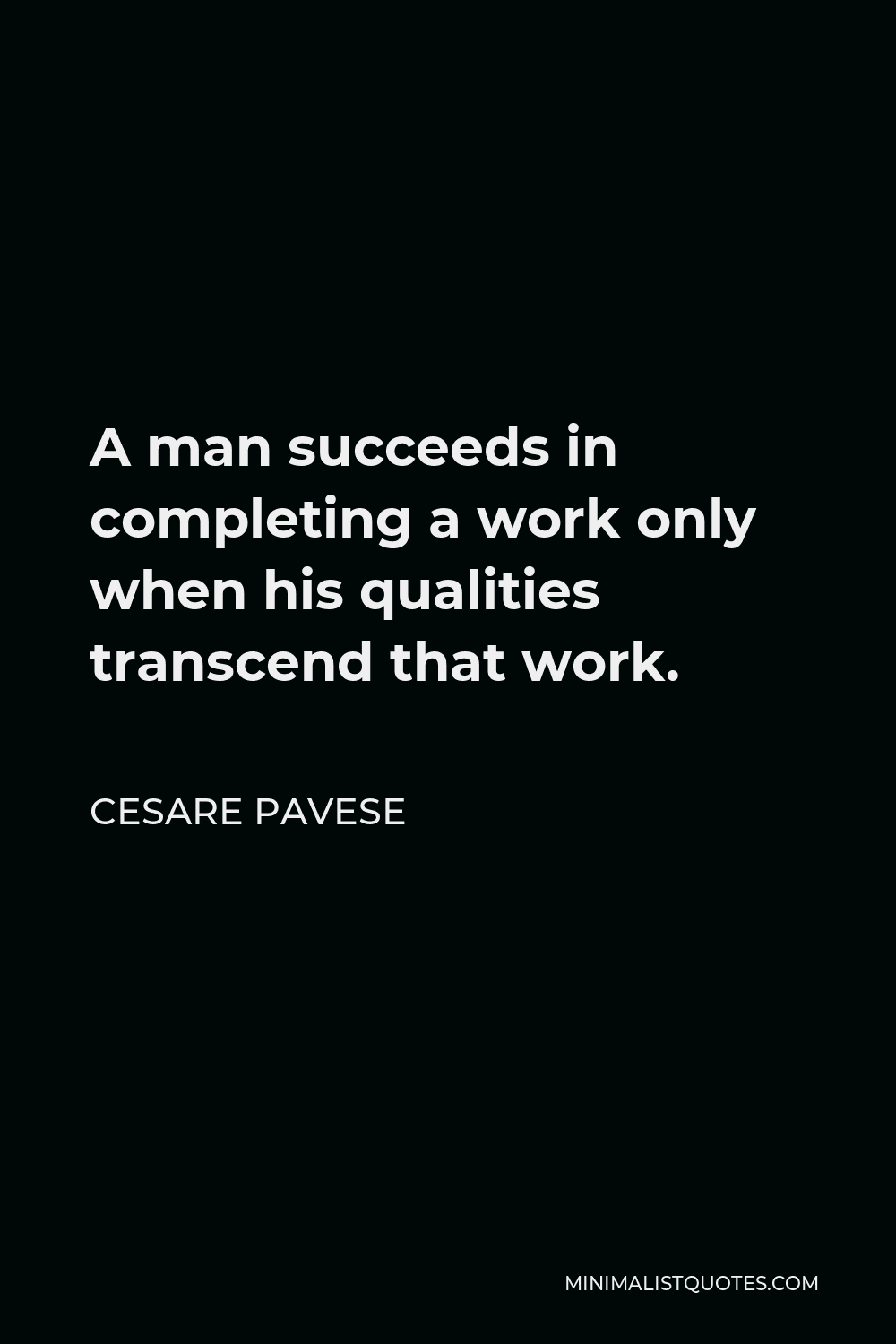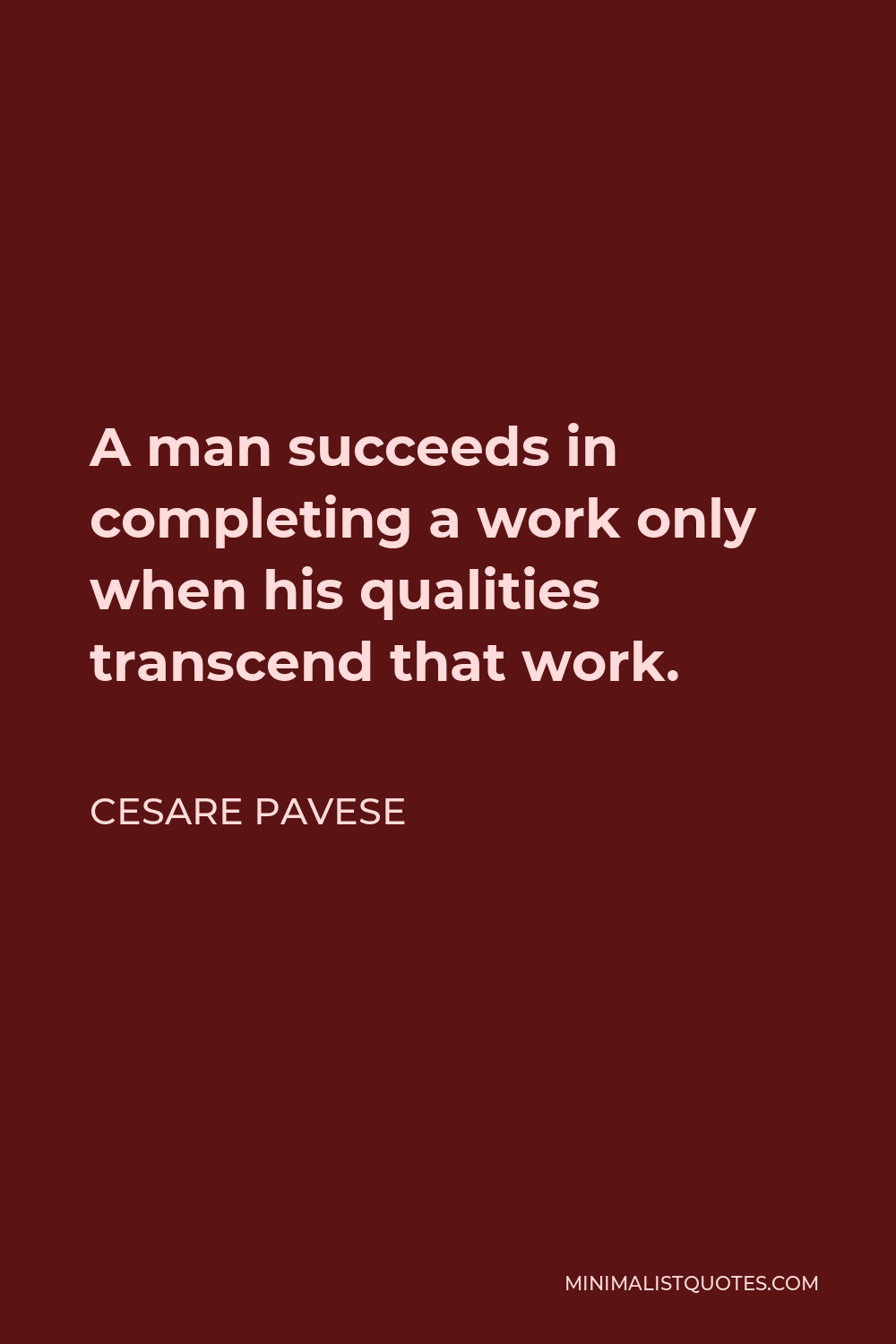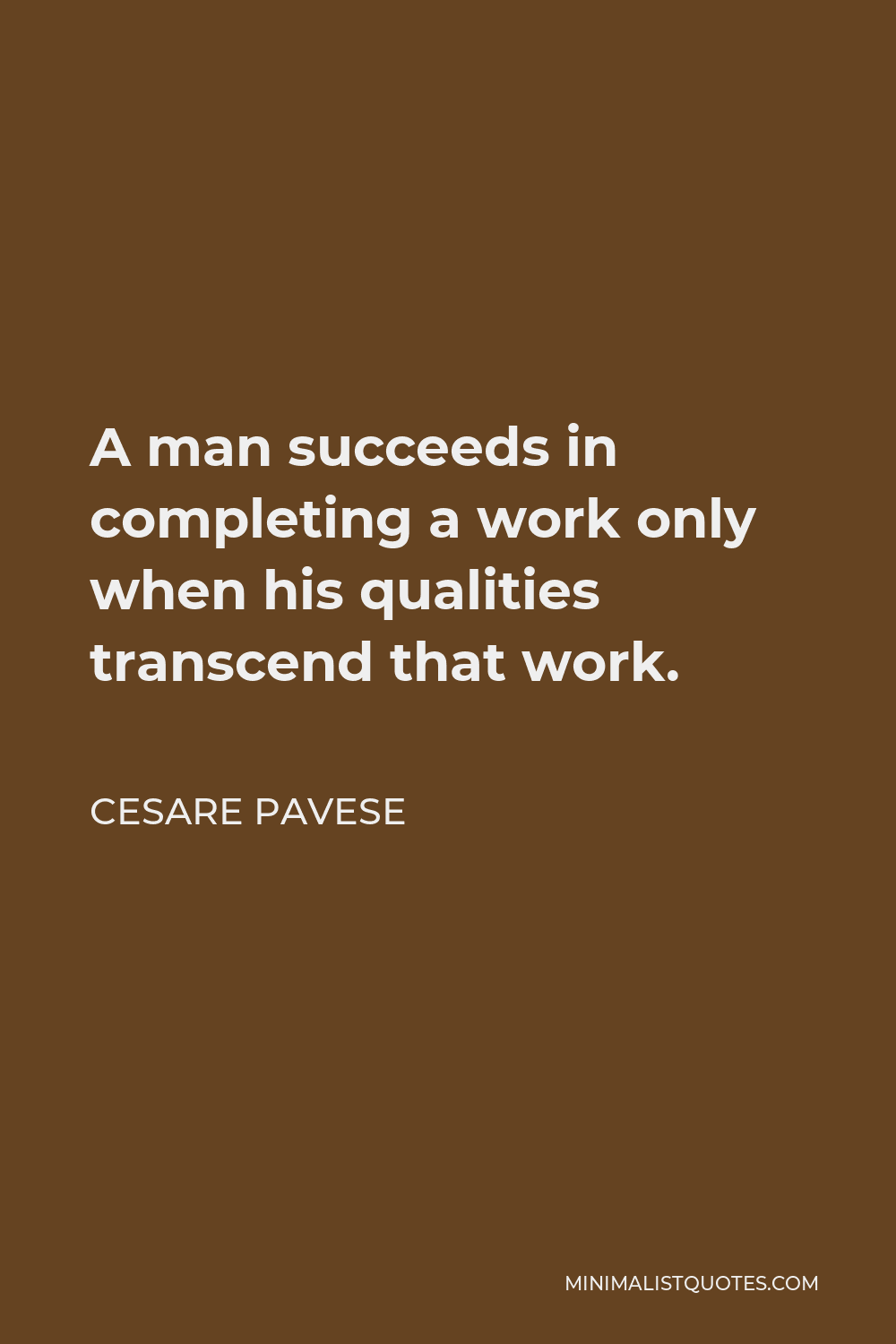All our “most sacred affections ” are merely prosaic habit.
CESARE PAVESEA man succeeds in completing a work only when his qualities transcend that work.
More Cesare Pavese Quotes
-





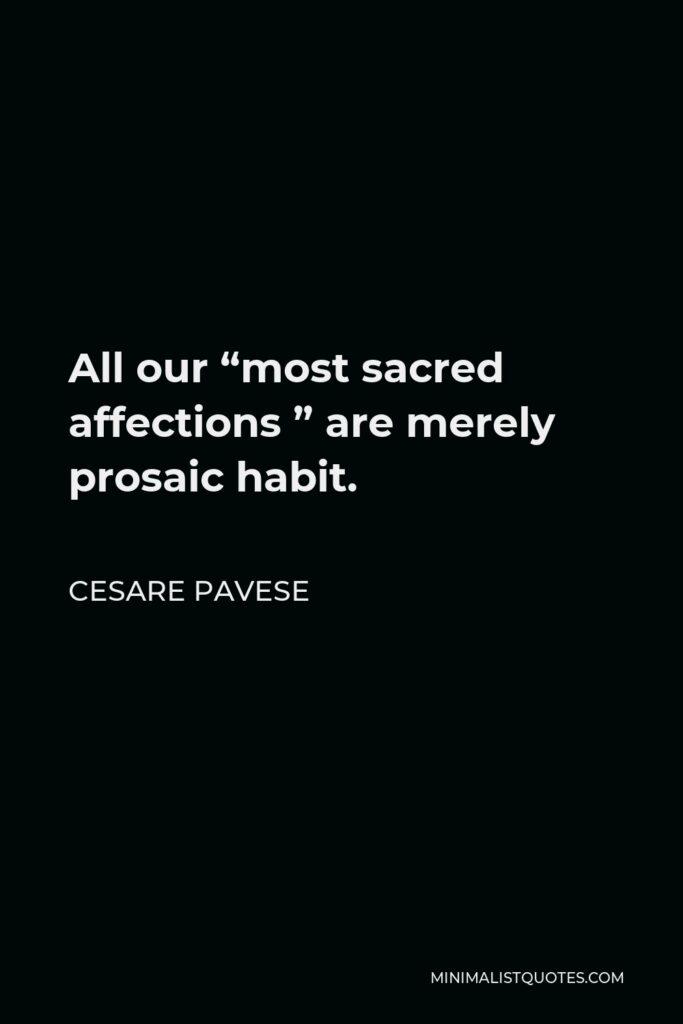

-





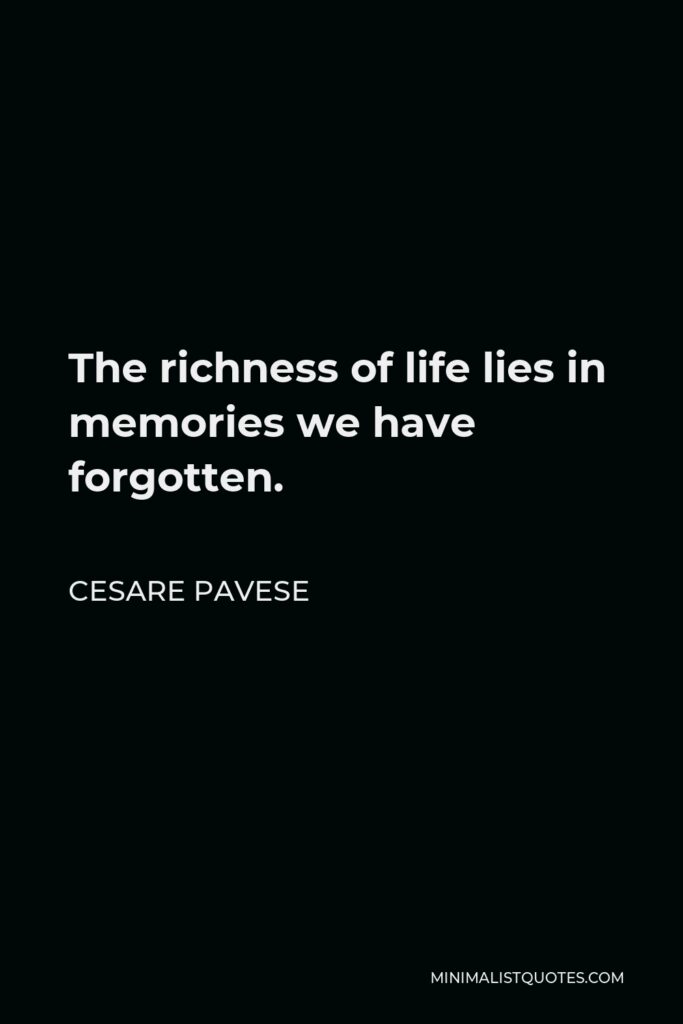

The richness of life lies in memories we have forgotten.
CESARE PAVESE -





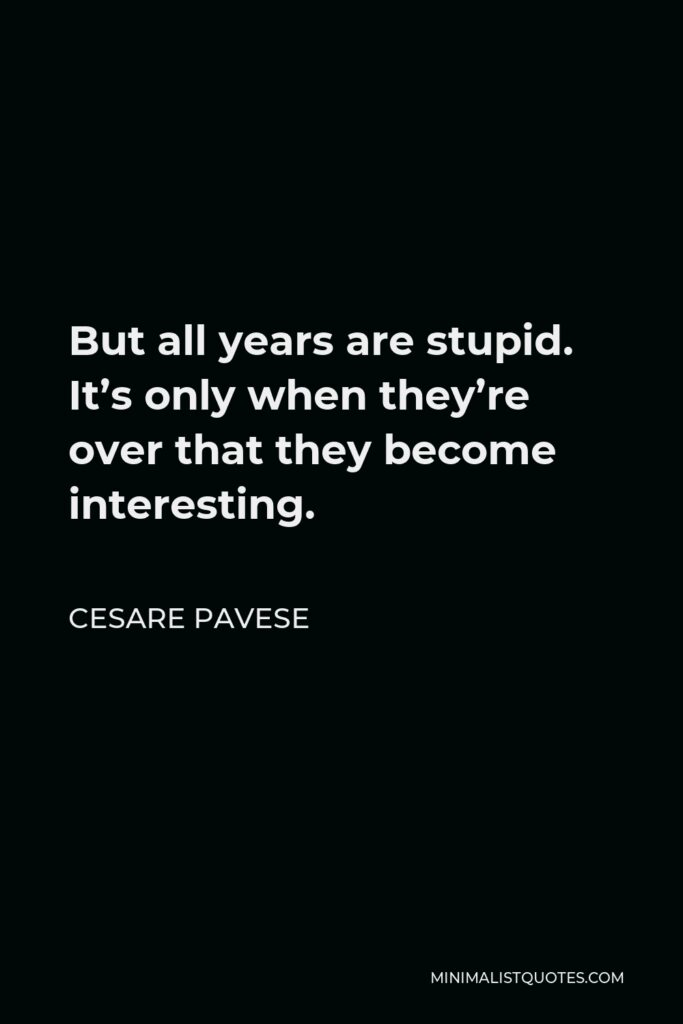

But all years are stupid. It’s only when they’re over that they become interesting.
CESARE PAVESE -





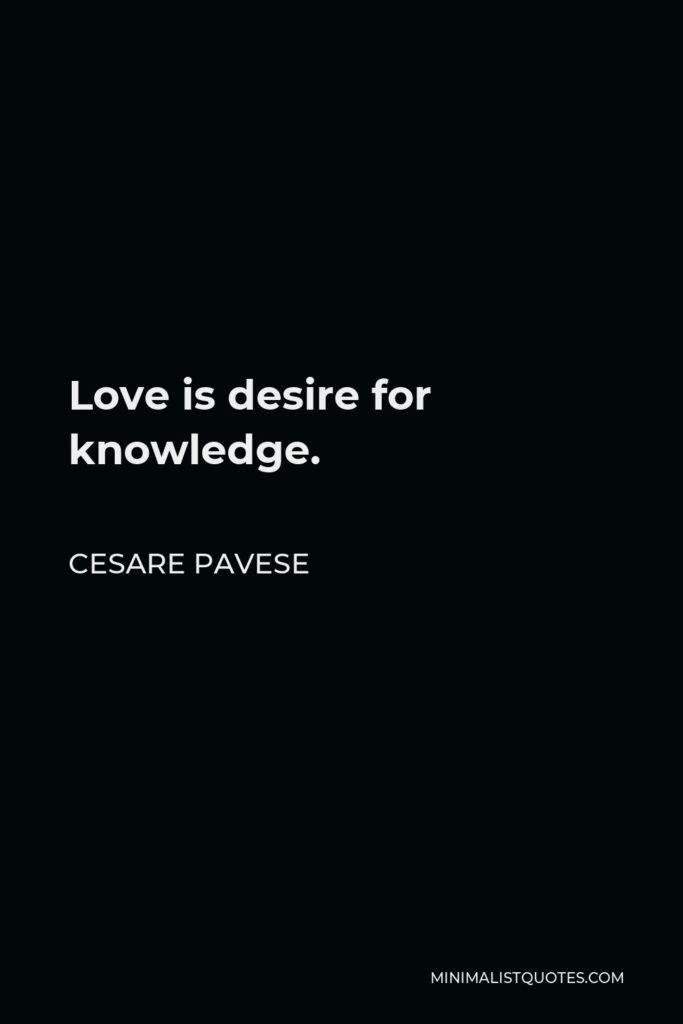

Love is desire for knowledge.
CESARE PAVESE -





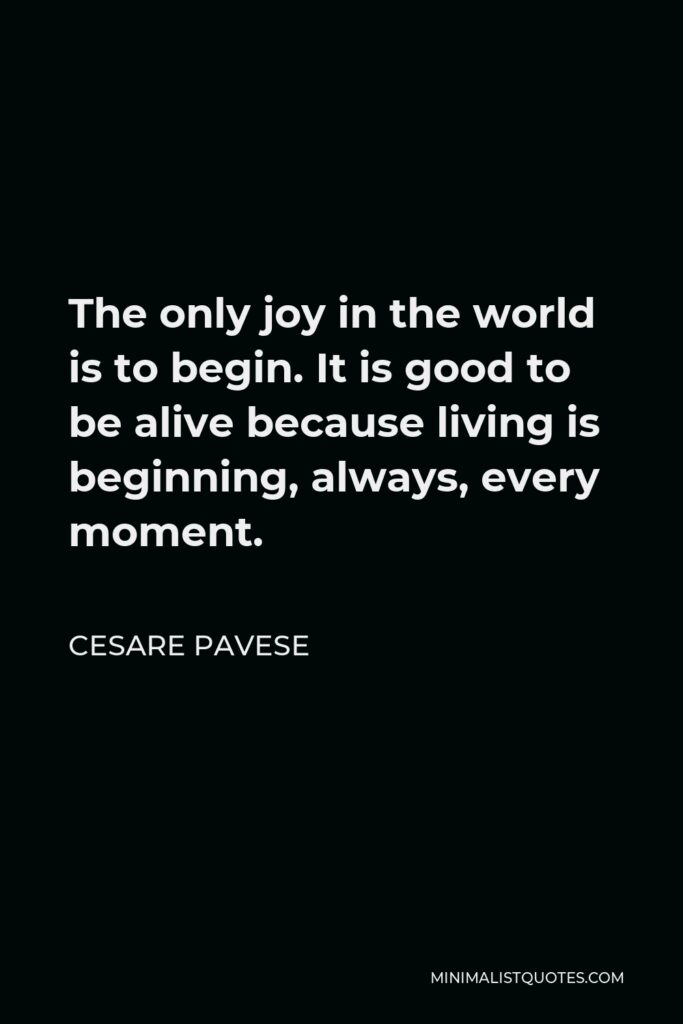

The only joy in the world is to begin. It is good to be alive because living is beginning, always, every moment.
CESARE PAVESE -





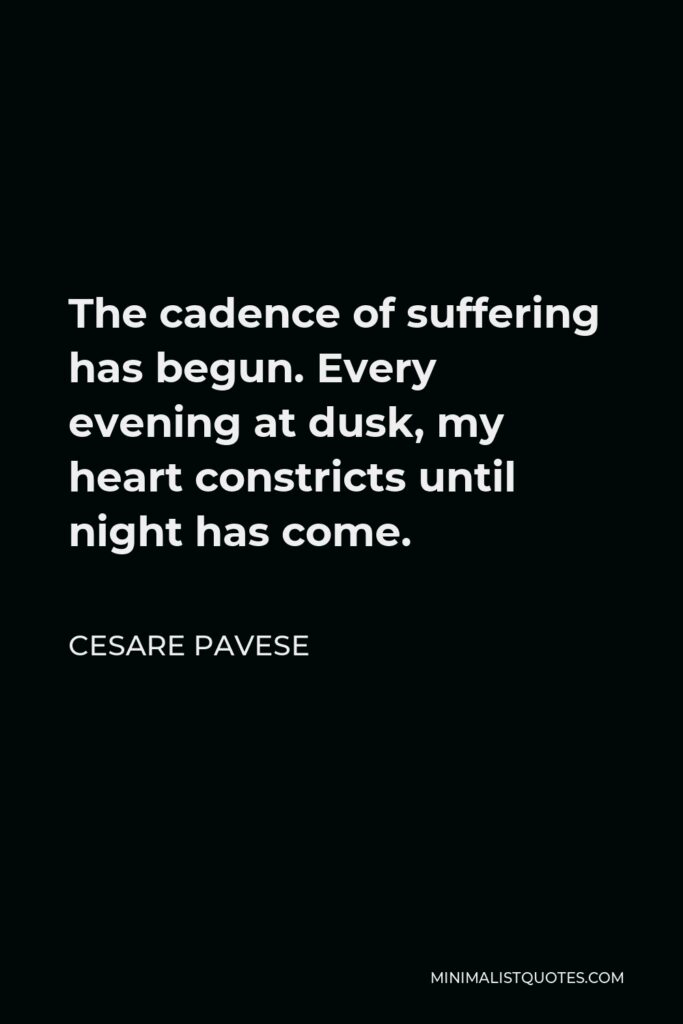

The cadence of suffering has begun. Every evening at dusk, my heart constricts until night has come.
CESARE PAVESE -







Things are revealed through the memories we have of them. Remembering a thing means seeing it only then for the first time.
CESARE PAVESE -





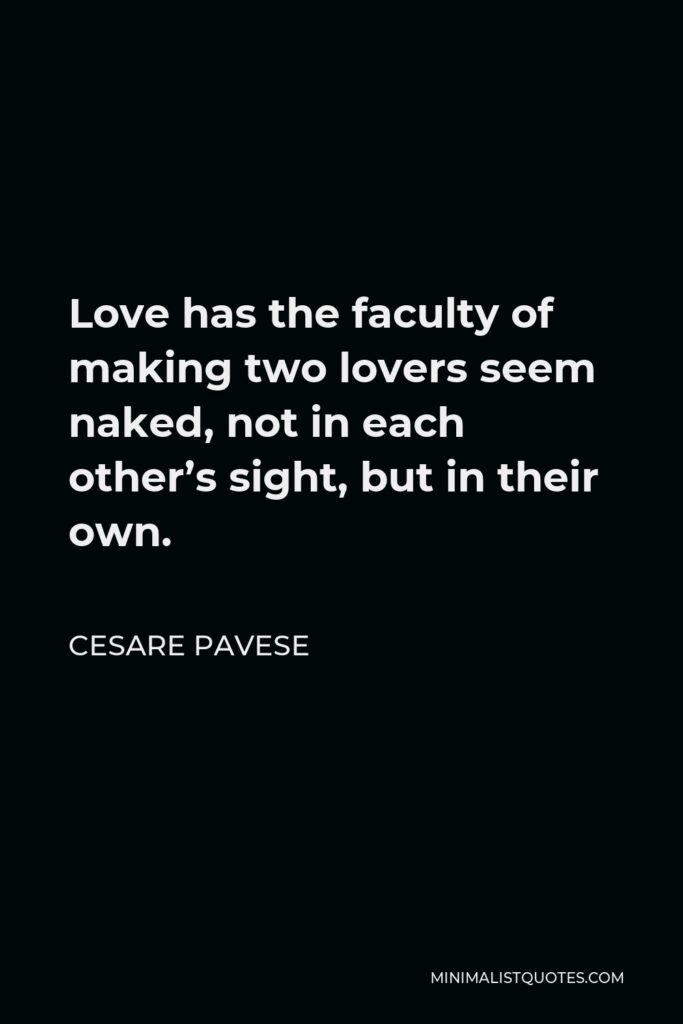

Love has the faculty of making two lovers seem naked, not in each other’s sight, but in their own.
CESARE PAVESE -





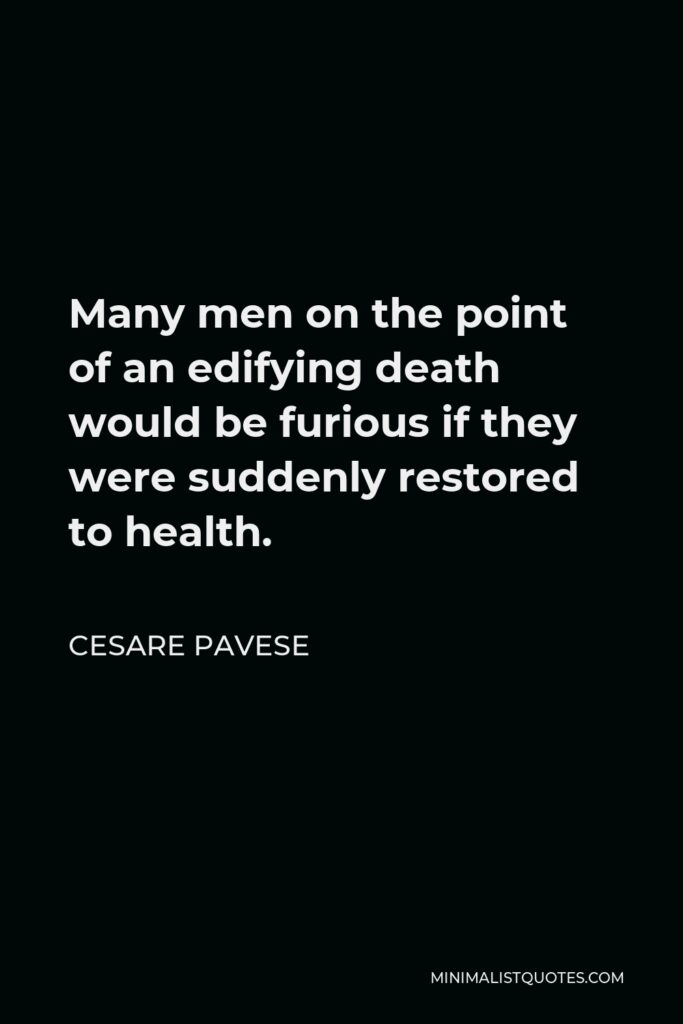

Many men on the point of an edifying death would be furious if they were suddenly restored to health.
CESARE PAVESE -





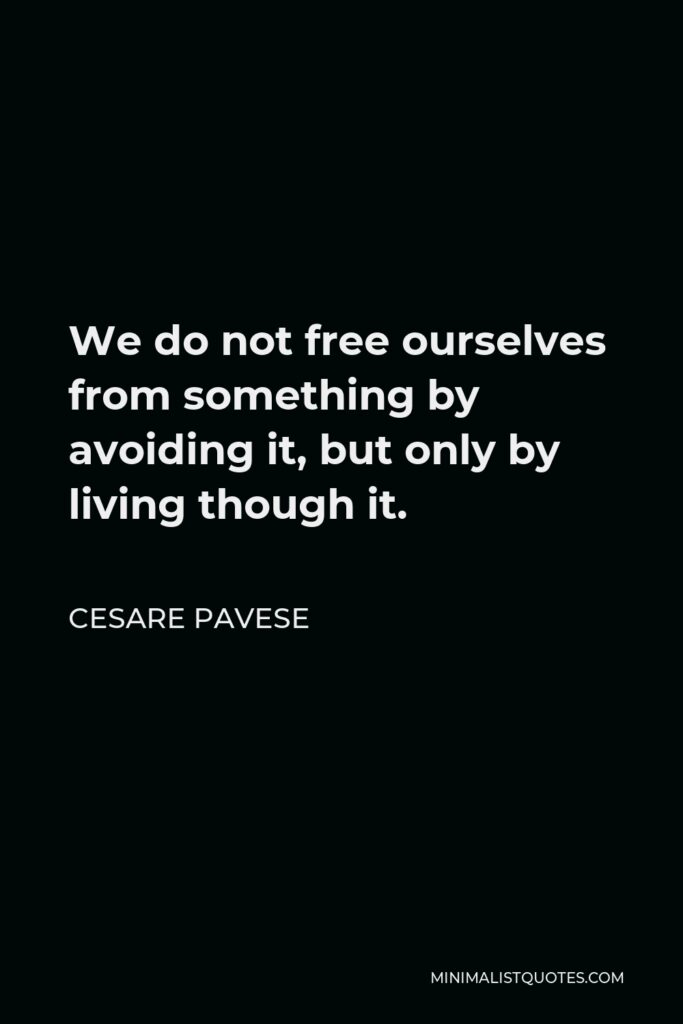

We do not free ourselves from something by avoiding it, but only by living though it.
CESARE PAVESE -





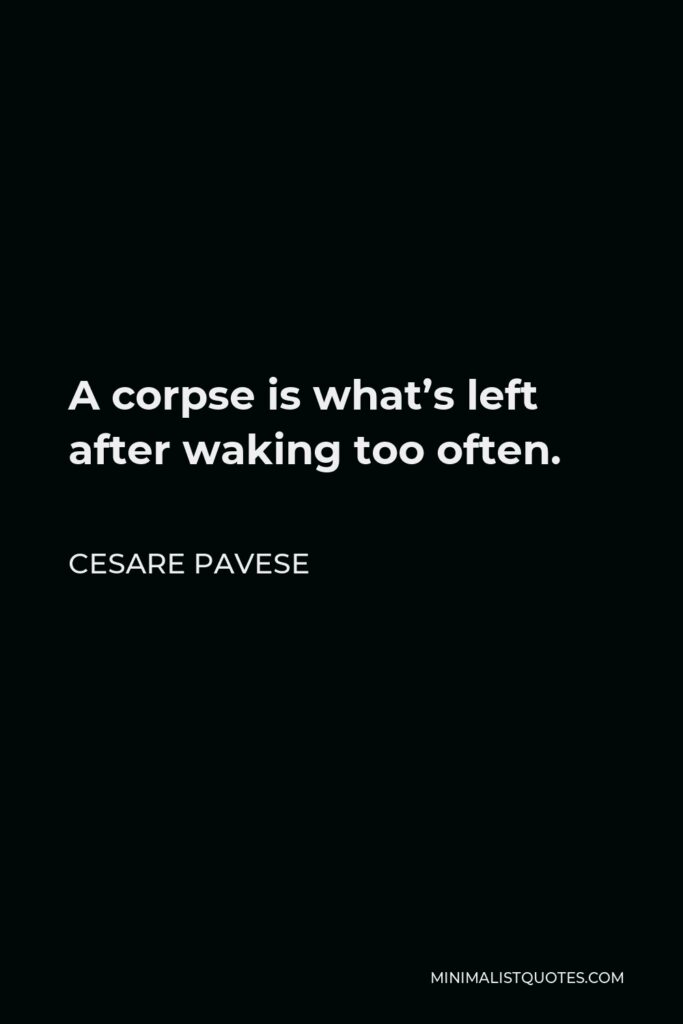

A corpse is what’s left after waking too often.
CESARE PAVESE -





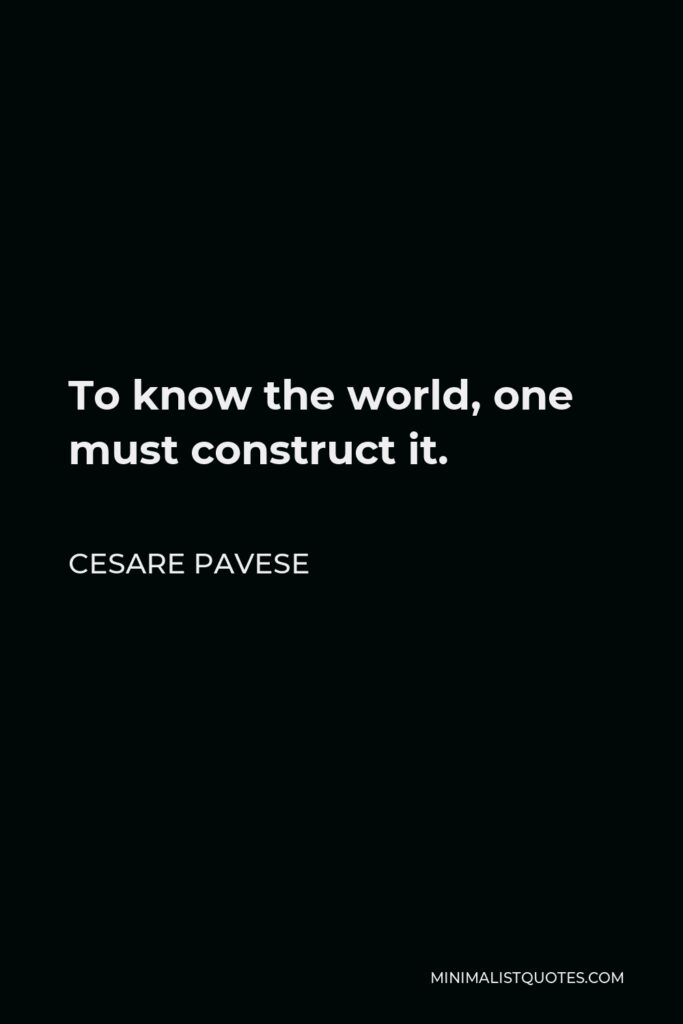

To know the world, one must construct it.
CESARE PAVESE -







Perfect behavior is born of complete indifference. Perhaps this is why we always love madly someone who treats us with indifference.
CESARE PAVESE -





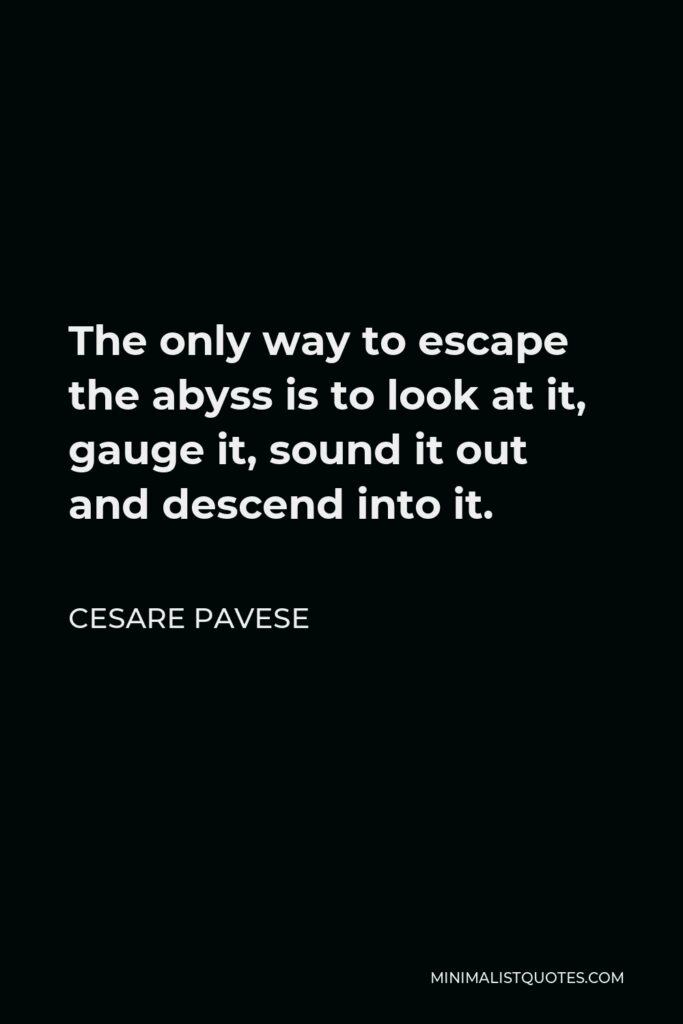

The only way to escape the abyss is to look at it, gauge it, sound it out and descend into it.
CESARE PAVESE -







Because, to despise money, one must have plenty of it.
CESARE PAVESE -





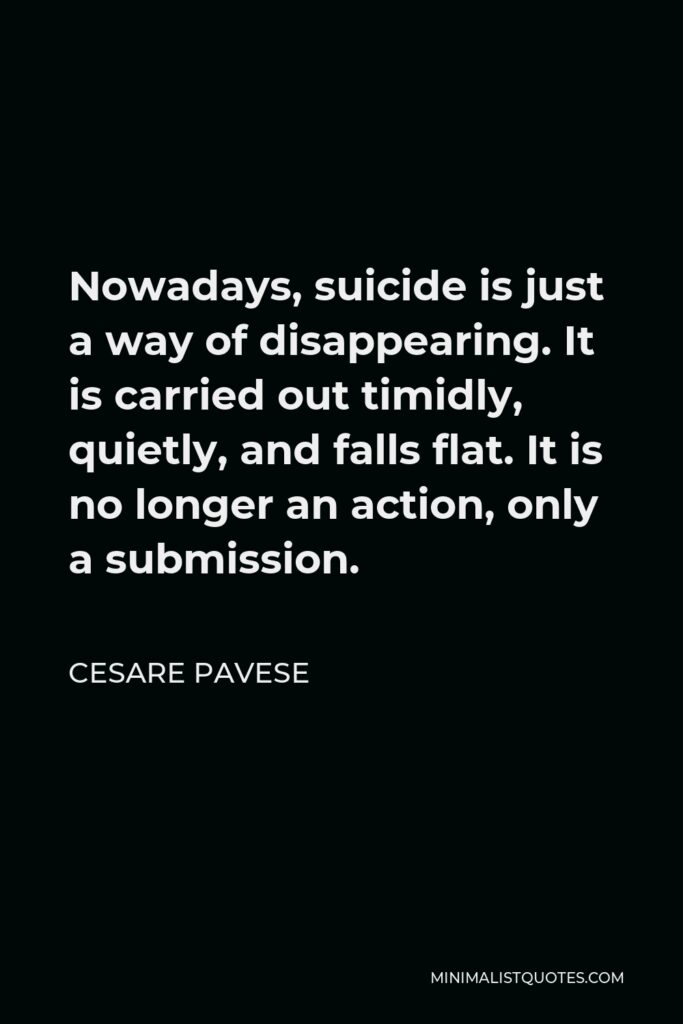

Nowadays, suicide is just a way of disappearing. It is carried out timidly, quietly, and falls flat. It is no longer an action, only a submission.
CESARE PAVESE
